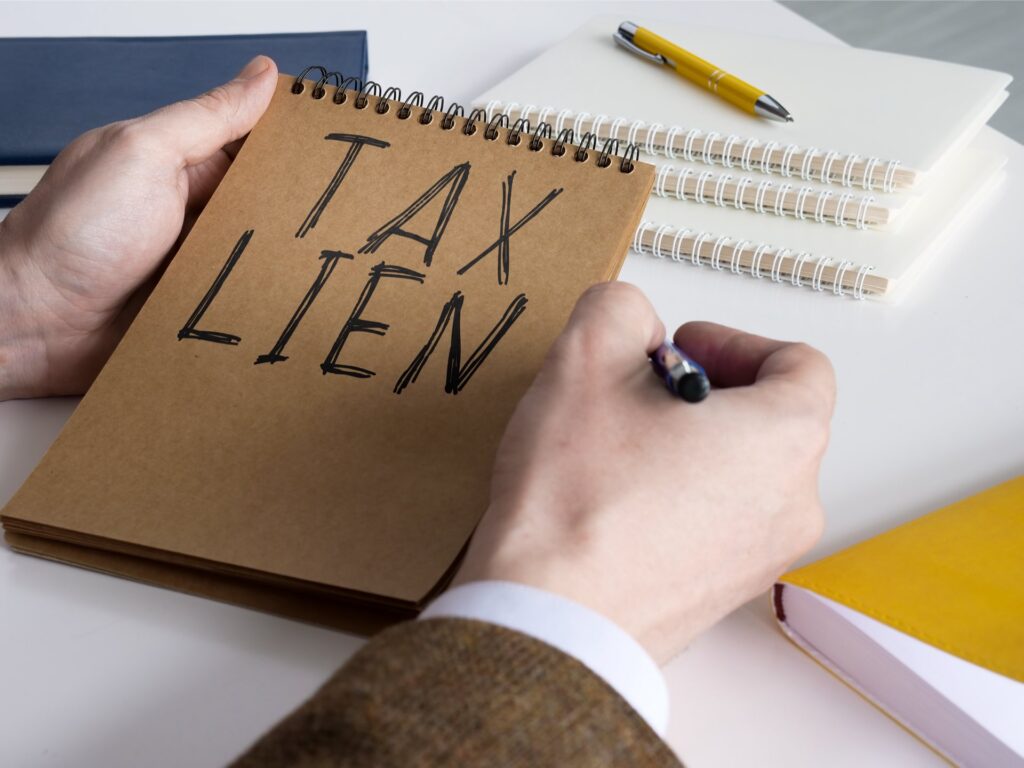If you have a significant amount of tax debt in Central New York, you may be considering the option of Chapter 7 bankruptcy to eliminate tax debt. Chapter 7 bankruptcy can provide Central New York residents with the financial assistance they need with a variety of debts with the potential to include things like tax debt.
At Grady PK, PLLC, our goal is to provide our Central New York clients with the clear and compassionate guidance they need as they navigate Chapter 7 bankruptcy. We will work with you directly to find the right bankruptcy option that fits your situation and your future financial goals. In this article, we will discuss whether Chapter 7 can eliminate tax debt and what happens to tax liens in bankruptcy proceedings. For further assistance with your bankruptcy case, call our office today to speak with a compassionate bankruptcy attorney in Central New York.
What is a Tax Lien?
Before we get into bankruptcy and tax liens, you need to understand what a tax lien means in Central New York and what it can apply to. A lien is a claim or security interest issued against a specific property, usually a mortgage. Tax liens can be either state or federal, which will slightly change how the process works and the potential repercussions.
Tax liens are usually imposed if you are not paying taxes on time, but this can also apply to other property payments, such as water and sewer charges.
A federal tax lien will have a negative impact on your credit as well as your ability to sell or transfer property. It will also restrict your ability to get a loan or other types of financial assistance.
The IRS won’t issue a tax lien if you owe less than $10,000. However, the IRS may be more likely to file a lien if you have a pending bankruptcy case or if there are signs that you are getting rid of assets to avoid making payments.
Tax Liens in Bankruptcy
If you are filing for Chapter 7 and you have an IRS tax lien, you may be wondering if bankruptcy will erase tax debt. How bankruptcy impacts IRS liens is very dependent on whether or not the tax lien was placed before or after you filed for bankruptcy. Here is a breakdown of what will happen in both situations:
- Before bankruptcy: If you already have a tax lien and you file for Chapter 7 bankruptcy, the bankruptcy court cannot discharge this tax debt. The lien will stay in place, and you will have to figure out a different type of repayment plan.
- After bankruptcy: When you have filed for Chapter 7, an automatic stay will take effect, protecting you from any collecting actions. This includes barring the IRS from taking action regarding any tax debt you may have. Because of this, you will be protected from a tax lien.
If you want to file for Chapter 7 to address tax debt, you need to hire a bankruptcy attorney in Central New York. An experienced attorney can help you navigate the bankruptcy process and determine what type of tax debt is dischargeable and non-dischargeable. They can also help you figure out a plan if your tax lien was imposed before you filed for bankruptcy.
Paying Tax Debt Through Chapter 7
If you have tax debt when you file for Chapter 7 bankruptcy, this type of bankruptcy can help you discharge certain debts. For this to apply, the tax debt has to meet specific criteria, including:
- There was no fraud or willful tax evasion involved.
- The tax return was filed at least two years before filing.
- The return was due at least three years before filing.
- The tax was assessed a minimum of 240 days before filing.
Because of the specific criteria, certain types of tax debts are not dischargeable under Chapter 7 such as recent income taxes and trust fund taxes. Tax penalties regarding non-dischargeable taxes are also not eliminated through Chapter 7.
Addressing Non-Dischargeable Tax Liens
Because tax liens imposed before you filed for bankruptcy remain, the IRS could still seize the property as a way of collecting payment. This includes tax liens that have been imposed on commercial property and personal property. To avoid this happening, you have several options that allow you to pay back what you owe.
The easiest option is to pay off the tax lien, which will resolve the case entirely. However, most people are not able to afford this so the next best option is to negotiate on a payment plan or a compromise that allows the release of the tax lien. You could also pay back your tax debt overtime by filing for Chapter 13 bankruptcy after your Chapter 7 bankruptcy plan, which is often referred to as Chapter 20 bankruptcy.
Some people choose to do nothing about their tax lien in the hopes that the IRS will not take any action to collect. It is not recommended to do this since there are several negative repercussions for having a tax lien if it hasn’t been addressed.
Central New York’s Top Compassionate Bankruptcy Attorney
Filing Chapter 7 to eliminate tax debt can feel very overwhelming, but once you understand how this works, the process is relatively straightforward. At Grady BK, PLLC, we will help you with every step of your Chapter 7 bankruptcy plan so that you can proceed with confidence. Having a Central New York bankruptcy attorney on your side will equip you with the knowledge and guidance you need to manage your bankruptcy plan and financial situation.
At Grady BK, PLLC, we understand how stressful bankruptcy can be, which is why we provide a compassionate and personalized approach where every client is our top priority. We can guide you through the Chapter 7 filing process as well as help you navigate tax debt and tax liens.
Contact us today at 315-299-9005 to discuss your situation with a bankruptcy attorney. Our team at Grady BK, PLLC is ready to provide you with the assistance you need, whether you are ready to file for bankruptcy or need assistance with other types of debt.




